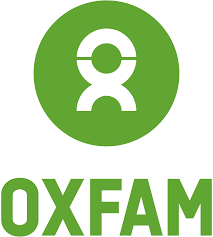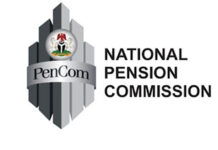An International NGO Oxfam has called for review of tax policy in Nigeria to reverse the current trend of payment of higher taxes by the vulnerable in the society than the rich.
Dr William Mafwalal, Acting Head of Programmes, Oxfam Nigeria made the call on the sideline of the Fiscal Accountability for Inequality Reduction FAIR4AlLL Media Colloquium and Exhibition on Wednesday in Abuja.
The programme was organised by Oxfam Nigeria in collaboration with the Dutch Ministry of Foreign Affairs, Connected Development (CODE), Civil Society Legislative and Advocacy Council (CISLAC), budgiT and Kebetkache Women Development and Resource Centre.
Mafwalal representing the Acting Country Director, Oxfam Nigeria Hamza Tijani, frowned at current practice of payment of higher or multiple taxes by market women and farmers.
He described the inequality as a contributing factor to the high rate of poverty in the society.
“Our tax system need a lot of work to ensure that this taxes are collected as they should and also ensure that the people saddled with the responsibility of pushing this taxes do their job.
“We have seen through research conducted that vulnerable people down the ladder in terms of economic status are the ones that pay more taxes than people up there having more economic opportunities due to policies and systems put in place by our government.
“The policies give sometimes tax relieve on some of these corporations and organisations that are suppose to pay heavy tax and allow the vulnerable market women and farmers in the villages pay tax on everything that they need or access to earn a living.
“Government should look at their policies again and ensure that those policies are balance that is ensuring fair taxation.
“Those who are suppose to pay taxes should pay those taxes and those who are suppose to pay more pay more while those that are suppose to pay less pay less,” he said.
He said the vision of Oxfam is for a Nigeria without inequality and poverty, and where every voice counts.
According to him, Oxfam Nigeria mission is to strengthen and empower civil society to help shape a Nigeria without inequality and poverty.
Mafwalal said Oxfam was trying to foster partnership among government agencies to strengthen system and block leakages within the tax system as well as ensure the budget system is as participatory as possible and delivery services as it ought to community.
“Part of what we are doing is Oxfam strategy of reducing inequality and gender justice and also contributing to global oxfam strategy on just economy, gender justice and accountable governance,
Henry Ushie, Project Coordinator, FAIR4ALL identified the programme as a global programme implemented across 14 countries including Netherlands.
“The overall objective of FAIR4ALL is to see how we reduce inequality as one of the root causes of poverty.
“Base on the research we conducted we realised that the reason for this much poverty is inequality which has really be endemic. We need to end that menace that is why this programme was introduced, ” he said.
According to him, through the programme supported by the Dutch Ministry of Foreign Affairs, Oxfam since inception of the programme three years ago has been able to work across policy area in terms of fostering policy implementation within the tax industry.
Ushie further said the organisation in collaboration with partners “have also ensure that budget is as participatory as much as it can and also promoted fair taxation,”.
Foluso Adejoro, Policy Advisor, Food Security and Climate Change, Embassy of the Kingdom of the Netherlands expressed concerns at the high inequality in rural areas.
He however said everyone should strive for positive change.
Adejoro who congratulated Oxfam and other partners for the progress so far in tax justice said It is important that “in driving change the action start at the community level most
Also, Joseph Amenaghawon, Strategy, Growth and Analytics Advisor, budgiTsaid he biggest trigger was to energies Nigerians to prioritise fiscal accountability adding that the measure could be used to deal with challenges of inequality.
Amenaghowon said his organisation working with Oxfam in three focal state of Akwa Ibom, Cross River and Delta, identified one of the biggest area as collaborating with the media.
“Also to train government around open contracting and also enabled communities better understand the dynamics around budget and planning.
“Ultimately the combination of all this things will enable citizens directly involved in how to manage public finances and most importantly how we can then use that to deal with challenges of inequalities,” he said.
Participants at the colloquium were drawn from Nigeria Labour Congress (NLC), National Environmental Standard Regulations and Enforcement Agency, National Human Right Commission among others.





















